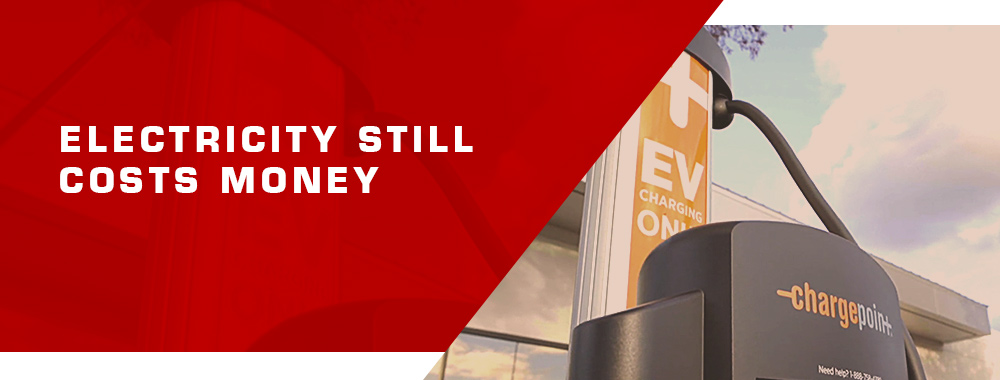Choosing a new car is difficult. It’s even harder if you’re choosing between an electric car, such as the best-selling Tesla Model Y, Chevrolet Bolt, or Ford Mustang Mach-E, and a traditional gasoline-powered car.
Before you sign the paperwork for your next car, familiarize yourself with the pros and cons of owning an electric vehicle. This will help you make an informed decision.
What are the advantages of owning an electric car?
Lack of fuel
The biggest advantage of electric cars is obvious — you no longer need to fill the gas tank. That’s a big deal since the average American spends between $2,000 and $4,000 on gasoline every year. With all-electric cars like the Nissan Leaf, this cost is eliminated, although electricity is not free. A plug-in hybrid, or PHEV, can also eliminate some of your gasoline costs, but it still uses the gasoline engine as an increase in range.

1. Oil. In addition to fuel savings, electric vehicles offer another significant maintenance cost savings. Since an electric car is all-electric, it doesn’t need oil to lubricate the engine. This means oil changes are a thing of the past. The same is true for many other costly engine jobs that can affect a gasoline-powered car.
2. Pads. The brakes also don’t wear out as quickly, thanks to a different braking principle. So you don’t have to change the pads as often as in a conventional car.
3. Batteries. Manufacturers offer a minimum 8-year or 100,000-mile warranty on batteries for electric vehicles. Hyundai offers even more protection in the form of a lifetime battery warranty on some models.
Tax deductions and exemptions
Electric cars may qualify for federal tax credits and other state and local tax credits. Check with your area about the $7,500 federal tax credit. Many states also offer incentives for electric cars. As a result, a $30,000 auto can easily drop below $20,000. Leasing an electric car can also be tempting. Some leasing companies take a tax credit and pass the savings on to the driver. If not, use it as a bargaining point when buying a car.
Reduction of carbon dioxide emissions
Of course, owning an electric car has another important benefit. For many drivers, simply knowing that they are contributing to saving the planet. For example, as described, would be reason enough to drive an electric car.
They are quieter than gas cars
Electric cars are very quiet, especially when running entirely on battery power. In some states, lawmakers have considered requiring electric cars to have noise generators so that pedestrians know they are driving. Some automakers have begun artificially adding engine noise to the vehicle. When accelerating, the driver gets the feel of a traditional engine.
Engage HOV lanes
Some major highways have HOV (high occupancy vehicle) lanes that can bypass rush hour traffic. This is called the passenger vehicle lane, but it is also available to electric car drivers. Even if your electric car is just driving you alone, you are entitled to use this special lane.
If you’re thinking about getting an electric car, it’s worth considering your charging options. In the next article we’ll discuss how to choose an EV charger for your vw id.4 and talk about some of our favorite models that are currently available on the market today. We hope this information is helpful as you make one of the most important decisions in life – what kind of vehicle will best suit your needs?
What are the disadvantages of owning an electric car?
There aren’t many model options
Automakers have been building traditional car models for more than 100 years. Mass production of electric cars as we know them now began only in the 1990s. There are not as many affordable electric models as there are gas-powered ones. The good news is that experts predict that prices will come down.
Mileage without refueling
The main obstacle to owning an electric car has to do with range and the fear of running out of charge when you’re not near a charging station. However, as battery technology improves, so will mileage without refueling, and these problems will begin to disappear. Toyota is reportedly planning to introduce a solid-state battery with 600 miles of range any day now.

In the meantime, here are some examples of what you can expect from a long-range battery. According to the Environmental Protection Agency, the 2021 Nissan Leaf Plus with a 62 kWh battery will get about 226 miles. That’s more than enough for most drivers, but many will need a second car, if only to calm their nerves.
Tesla cars can travel one of the longest distances without refueling among all production electric vehicles on the market. The 2021 Tesla Model S offers an estimated EPA range of up to 387 miles, and the upcoming Model S sedans demand even higher numbers.
What affects the calculation of the distance an electric car will travel? Battery wear and tear, temperature changes, and other factors that affect an electric car’s battery consumption.
Sometimes a charging station can be hard to find
Temporary disadvantage. More charging stations are popping up around the country as more and more people drive electric cars, so it may not be a shortcoming for long.
In some areas, there are many charging stations for electric vehicles (EVs) in various parking lots and along the side of the road. This is not the case in every city. Road trips with electric vehicles can be difficult. The Level 2 home charging station [29] cannot be taken on the road.
Installing a charging station for electric cars at home
Another big disadvantage is that many drivers need to install an electric vehicle charging station at home. This is not really necessary if you live near a lot of public charging stations in large cities, at work, or in shopping malls. But most customers prefer the convenience of a Level 2 charging station at home [29]. It saves on the cost of owning an electric car.
So, we recommend that you take a look at the BOSCH electric vehicle charger models. They are distinguished by their stable operation and good design. We compared them with other electric car chargers, both portable and stationary ones. Exactly about BOSCH electric car chargers you can read in our article below which has selected the best models for you to choose from based on your needs and budget. Remember, when choosing an EV charger it is important not only if it suits your needs but also how much money should be spent on its purchase because there’s no point in buying one of those expensive products that will never be used or need replacing due to constant use (or abuse).
It takes time to charge the battery
It can take up to three minutes to fill up the gas tank at the gas station, though charging the battery of an electric car takes much longer. The owner of an electric car often knows how to calculate the charging time. Depending on the model, it can take up to 20 hours to fully charge an electric car.
Technically, you can charge an electric car from a standard 120-volt outlet. But the 240-volt Level 2 charging station [29] is much faster.
Newer and more expensive models can charge in as little as four hours. However, having a charging station in your own garage is the choice of most car enthusiasts because of its convenience.
For example, the time for charging Chevy Blazer EV will depend on the battery size and charging station used. However, it is expected to take around 8 hours to fully charge with a level 2 charger.
Expensive battery replacement
While owning an electric car eliminates many maintenance issues, such as oil, it can also lead to high costs. This is mainly due to the batteries installed in today’s electric vehicles. Some manufacturers give different warranty lengths. Total battery life is expected to be about ten years, and replacing battery packs can be expensive. Most estimates put the cost of replacing an electric car battery [09] at thousands of dollars.

Finally, owning an electric car does not eliminate fuel costs. However, many drivers will not notice that costs increase by more than $20 a month at best. At the time of writing, consumers in the United States were paying about 15 cents per kilowatt-hour for residential electricity. California residents pay more than 23 cents per kWh.
Influence of temperature on distance
Using the heater, seat heating, or air conditioner is more significant for resource consumption than in a car with an internal combustion engine. In cold weather, it can reduce the planned distance by a factor of 3.
We hope your choice in favor of an electric car or a car with an internal combustion engine will be easier with the current review.
Just got my first EV and the silence is golden. No more engine noise! It’s like driving a cloud. But, I’m still getting used to the range limits.
Range anxiety is real but gets better with time. Plan your trips and always have a charging plan. It becomes second nature soon.
I’m all for saving the planet, but EVs still rely on electricity which can come from non-renewable sources. Feels like a catch-22. Thoughts?
You’re right, it’s not perfect. But as more renewable energy sources come online, the overall impact will be far better than gas cars.
Looking for an affordable EV. Anyone know a good model that won’t break the bank but still offers decent range and features?
The Chevy Bolt is a great option. Affordable, good range, and has some nice tech features. Definitely worth a look!
Anyone else frustrated with the slow pace of charging station expansion? I love my EV, but charging on long trips is still a hassle.
Agreed, but it’s improving. I’ve noticed more stations popping up. Patience is key, and maybe plan longer stops for now.
EVs are great, but I worry about the impact of mining for battery materials. Are we just trading one environmental issue for another?
It’s a valid concern. However, the industry is moving towards more sustainable practices and recycling old batteries. It’s a work in progress.
Love zipping around the city in my EV, but finding a reliable and fast public charger is still a gamble. Anyone else experience this?
Totally feel you. I’ve started using apps to find reliable chargers, helps a bit.
Just joined the EV club. Any maintenance tips for a first-time owner? Want to make sure I’m doing everything right.
Keep an eye on your tire pressure and don’t skip software updates. Also, avoid exposing your car to extreme temperatures for too long.
As a trucker thinking about switching to an electric truck, I’m concerned about charging times on long hauls. Any truckers with EV experience here?
It’s a different pace for sure. Planning is crucial, and you’ll need to account for charging times. But it’s doable and getting better.
Love the instant torque in EVs, but miss the roar of a gas engine sometimes. Anyone else feel this way?
Definitely miss the sound sometimes, but the acceleration in an EV is unbeatable. It’s a fair trade-off for me.